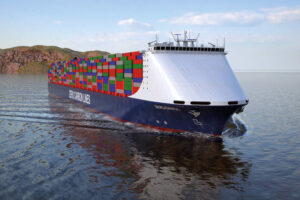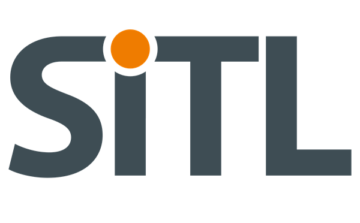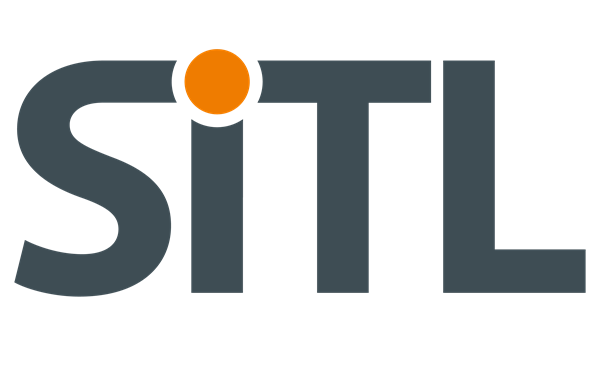Denis Choumert, Président de l’Association des Utilisateurs de Transport de Fret (AUTF), partenaire historique de la SITL, profite du salon pour évoquer les sujets majeurs qui touchent son secteur.
Pourquoi est-il important pour l’AUTF d’être présente sur la SITL ?
Nous sommes ici pour échanger sur tous les grands sujets structurants : les conséquences des changements dus à la transformation énergétique du transport qui s’accélère avec la crise ukrainienne, et la montée des prix du gaz et du pétrole ; tout ce qui concerne la résilience des supply chains et comment trouver des processus qui permettent de faire face à de possibles perturbations ; enfin, il y a tout ce qui est lié à l’équilibre des transports et des marchés.
Comment appréhendez-vous ces problématiques ?
On a détourné l’acronyme RSE. Le R, c’est Résilience ; le S, Sobriété énergétique ; le E pour Éthique et l’importance de l’éthique business. La crise Covid a bousculé tous les codes dans les transports. La logistique dans son ensemble va avoir besoin d’une main d’œuvre assez qualifiée, manquante de façon criante.
La crise Covid a bousculé tous les codes dans les transports.
Quels sont les projets de l’AUTF ?
On veut continuer nos projets liés à la réduction d’émission de CO2 et à la sobriété énergétique. Environ 130 entreprises sont engagées, l’objectif final, fin 2023, s’élève à 400. On va sans doute participer à d’autres projets, l’un lié au report modal, l’autre à la logistique urbaine. Pour l’international, on se penche sur l’évolution du marché maritime, avec la future réglementation européenne pour mieux cadrer celui-ci.

Low Carbon Maritime Transport : premiers bateaux dans trois ans
L’AUTF, en partenariat avec France Supply Chain, a créé l’association Low Carbon Maritime Transport. Denis Choumert nous en explique la genèse et l’objectif : “Certains chargeurs se demandaient si une technologie existait pour propulser des voiliers cargos avec le vent, en gagnant 70-80% de l’énergie thermique utilisée et en ayant suffisamment de navires pour un service régulier. On a réuni une quinzaine de chargeurs intéressés. Les premiers bateaux seront mis en service dans trois ans, le contrat est sur cinq ans, pour que les armateurs puissent s’appuyer sur ces contrats et ces volumes afin de financer les bateaux. Ce sont des chargeurs français, principalement pour des flux France-Etats-Unis. Sur chaque ligne, ce sera un service hebdomadaire, des “transit time” à peine supérieurs à ceux des porte-conteneurs et des prix à peine supérieurs à ceux d’avant la crise. Le tout avec au moins 50% d’économie de carburant.”
Photo : © RX
STAND C54
Discussing the major structural topics
Denis Choumert, President of the Association of Freight Transport Users (AUTF), a historical partner of SITL, uses the event as a platform to discuss the major issues affecting his sector.
Why is it important for the AUTF to be present at SITL?
We are here to discuss all major structural issues: the consequences of energy transformation in transport, which is accelerating with the Ukrainian crisis, and the rise in gas and oil prices; everything related to the resilience of supply chains and how to find processes that allow you to deal with possible disruptions. Also, there is everything related to the balance of transport and markets.
How do you address these issues?
We have hijacked the acronym RSE (CSR). R stands for Resilience, S stands for energy Sobriety and E stands for Ethics and the importance of business ethics. The Covid crisis has shaken up all the norms in transport. Logistics as a whole will need a fairly qualified workforce, which is currently lacking.
The Covid crisis has shaken up all the norms in transport.
What are AUTF’s projects?
We aim to continue our projects related to the reduction of CO2 emissions and energy sobriety. Currently having around 130 companies involved, the final objective, at the end of 2023, is to have 400. We will no doubt participate in other projects, one linked to modal shift, the other to urban logistics. For international operations, we are looking at the evolution of the maritime market.
STAND C54
Low Carbon Maritime Transport: first boats in three years
The AUTF, in partnership with France Supply Chain, has created the Low Carbon Maritime Transport association. Denis Choumert explains its genesis and objective:
“Some shippers wondered if there was a technology that could propel cargo sailboats with the wind, saving 70-80% of the thermal energy used and having enough ships for a regular service. We brought together about 15 shippers who were interested in this project. The first boats will be commissioned in three years, the contract is for five years, so that the ship-owners can rely on these contracts and these volumes to finance the boats. These are French shippers, mainly for France-United States flows. On each line, it will be a weekly service, “transit times” barely higher than those of container ships and prices barely higher than those of before the crisis. All with at least 50% fuel savings.”


